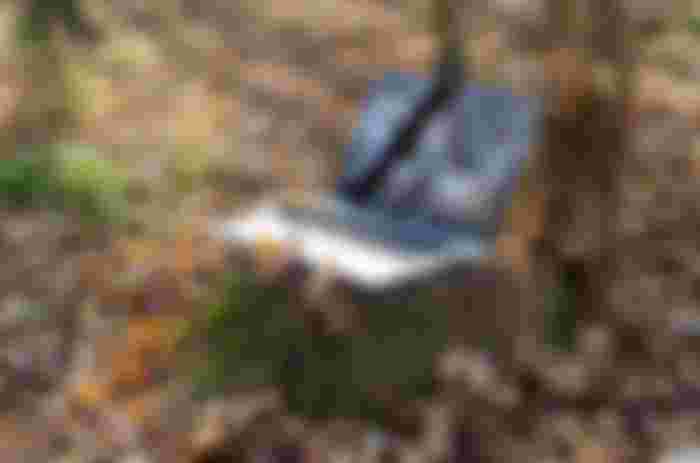Wow look what I found on YouTube (YT). 😲 Are you aware we have a Biodiversity Conservation Society of the Philippines? Somehow as I was browsing, an interesting video popped up as a recommendation. Actually I haven't been checking much on the YT channels I've subscribed to so when a nature related video came up I checked it.
The recommended vid was Biodiversity Matters 1 by Philippine Biodiversity channel however I didn't find it that interesting. It is in English and "friendlier" to the international audience yet I scrolled away. Maybe one day I will watch or listen to it hehe. Sorry but it kinda bored me. From the other recommended videos, I saw another image like this one:

Seems interesting right? Hey it's geared to millennials, as you can see from the title. Lol. So this is what I watched and listened to instead. The thing I like about this discussion is it is in Filipino.💖 That makes it the best for everyone and the common Pinoy.
Alam mo yun? Wag na tayo puro English kasi di nakaka-relate much ang lahat pag ganyan. Hahaha. Ang karaniwang tao at kabataan dapat ma-involve sa pag-aalaga ng kalikasan and the best way to do that is thru vernacular discussions like this.
Unlike the other videos on conservation where most people are talking in English, it's always not as fun to listen to. Come on admit it, when we talk in our native language it is more fun to discuss things (or make chismis and kwento kwento). Hahaha.
So anyway you can watch or listen to it below to appreciate it more. You can also find this on Spotify if you want to listen to podcasts instead. These six professionals are involved in various scientific fields. They are either wildlife biologists, botanists, entomologists or conservationists. All of the guest speakers were able to discover or rediscover various flora or fauna species in the country.
I recommend you watch this if you are a teenager, college student, plantito/plantita, animal lover and all around nature lover or environmentalist. You can definitely know more from fellow Filipino millennials talking about nature conservation and their experiences. Hehe.
Think about it, are you even aware we have several of our fellowmen doing such things? I bet most people think only old people do this. Oh no my dear readers... Haha. It's time for fellow millennials and the youth to step up. If you don't know how they work and what they do, this is the best way to find out.
Here's the YT video on biodiversity talks:
Since the video is not in English I will just share with you some of the things I learned from the 2 hour discussion. The five guests talked about different species which I will enumerate in my next article, in no particular order. But first a bit of background on the organization.
♦ Biodiversity Conservation Society of the Philippines (BCSP)
On their official Facebook Page you can see this:
The BCSP is an organization of wildlife researchers, managers, scientists, and conservationists working to advance wildlife research and conservation in the Philippines.
Since 1992, wildlife biologists and conservationists from throughout the country have been meeting at different venues around the Philippines and the proceedings from most of these annual meetings have been published. The Society was officially registered as WCSP in 1993 and as BCSP in 2014.
The BCSP is a non-stock, non-profit, non-governmental organization (NGO) registered under Philippine laws.

This organization also aims to increase the public's awareness and understanding of Philippine biodiversity. It can definitely help us appreciate our natural resources more if we know what they are.
Now that you are more familiar with this NGO, let me share what I learned today.
♦ 3 Things I Learned From This Discussion
1. Birds are reptiles?!
Did you know, birds are considered reptiles? 😮 This is the top thing I learned in this fun discussion. Haha. I never knew, I thought birds are mammals? If you're gonna check on this, you might find some debate online. What I found out from a quick online research is, birds are considered reptiles if based on one of two traditional classifications.
However, according to Britannica, there are 5 vertebrate groups and birds are one of them. This makes it separate from reptiles and mammals. So depending on which system you use, birds can be a reptile or a separate classification of animal entirely.
2. You Will Be Told What To Research or Focus On
All six of them agreed that they were advised to take on certain tasks. The projects they eventually researched or became part of were different from what they initially thought of doing. One of them were advised to work on mammals, another one on insects, and so forth.
Well that's interesting to know right? Maybe you can do your own side projects but still keep working on the main task? Hehe. Anyway at least this is good to know if someone reading this is planning on getting into the scientific and research field.

I once planned on taking a Master's Degree in Marine Biology but discovered I'd have to get some additional and required science units in college first. Oh my, after that I could finally get into a Master's program. However I need to be endorsed by someone. Huh? That made me wonder... Where the heck would I find someone to endorse me when it's just me who wants to study Marine Biology? 😅
From this discussion I learned that up until you finish your studies (or thesis?) maybe, someone will be there to advise you and such. That means we have to find that person first. Perhaps it could be the university professors themselves but that's another part of a future story.
If you've never been in the world of science I'm sure you'll be just like me, clueless on what to do. 😁 This is why watching the video is very insightful if you're also curious to know about science and scientific research.
3. Working in The Scientific Field Won't Make You Rich But...
That is always the question isn't it? It's always if you can be rich or earn a lot of money from your chosen profession.
As a kid I never really thought about such things. It's always the parents that think of this. My mom (or parents) didn't think the same way though. Haha. Her siblings being the more entrepreneurial ones had told our cousins to be nurses or engineers and such. Oh well.
Anyway according to these scientists, these days, there are many ways to live and be compensated while doing your job.

According to Ms. Realubit, undergrads who are interested to get paid as an apprentice can be compensated via the following:
get a DOST Scholarship
be a university research assistant
apply thru local biodiversity organizations or create your own group
do social entrepreneurship.
Mr. Pitogo also suggests working for the government. Government funding is available depending on proposed projects. He said it can also allow you to help make change happen directly and influence government policies. On the other hand, Mr. Galindon suggests submitting research project proposals to museums to get research funding. Mr. Lucañas says you can also get incentives or awards when you have your research published. Fun right?
Anyway, I'm sure it is also fulfilling when you discover species and publish papers. You can also get some kind of national recognition for sure.
They all concluded that you can make a good living out of it but it will not make you wealthy. Same with other highly skilled jobs, it can give you a comfortable or good enough life. 👍
* * *
This is another article for our Philippine History Month. I was thinking of a topic to post today and luckily I saw the YT video. See, our history does not only involve people but also the animals and plants in our country. (I'm sure you're also not aware of the animals they mentioned.) Discovering and rediscovering various species is also part of our country's story.
If you'd like to know more about the various animals and plants these local scientists are currently researching, stay tuned! In my follow up article, I will share what I found about the different species they are currently working on. Are you excited to learn about Philippine native flora and fauna? Haha. Of course you can do your own online research too.
I hope you learned something from the YT biodiversity talk and this article. 😉
XOXO,
* * *
(Lead image is from BCSP's YT video.)
Related Philippine history/culture articles:
Not a member of read.cash yet? Come join us!




Thanks for this, Lucy. I never knew birds are reptiles too! 😁 This made me read more about biodiversity